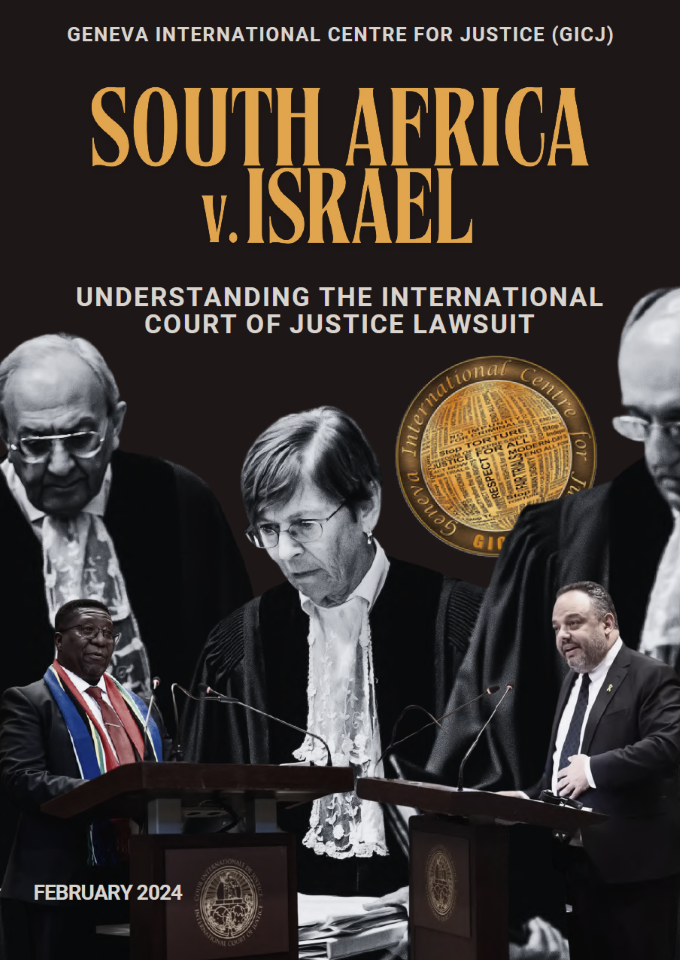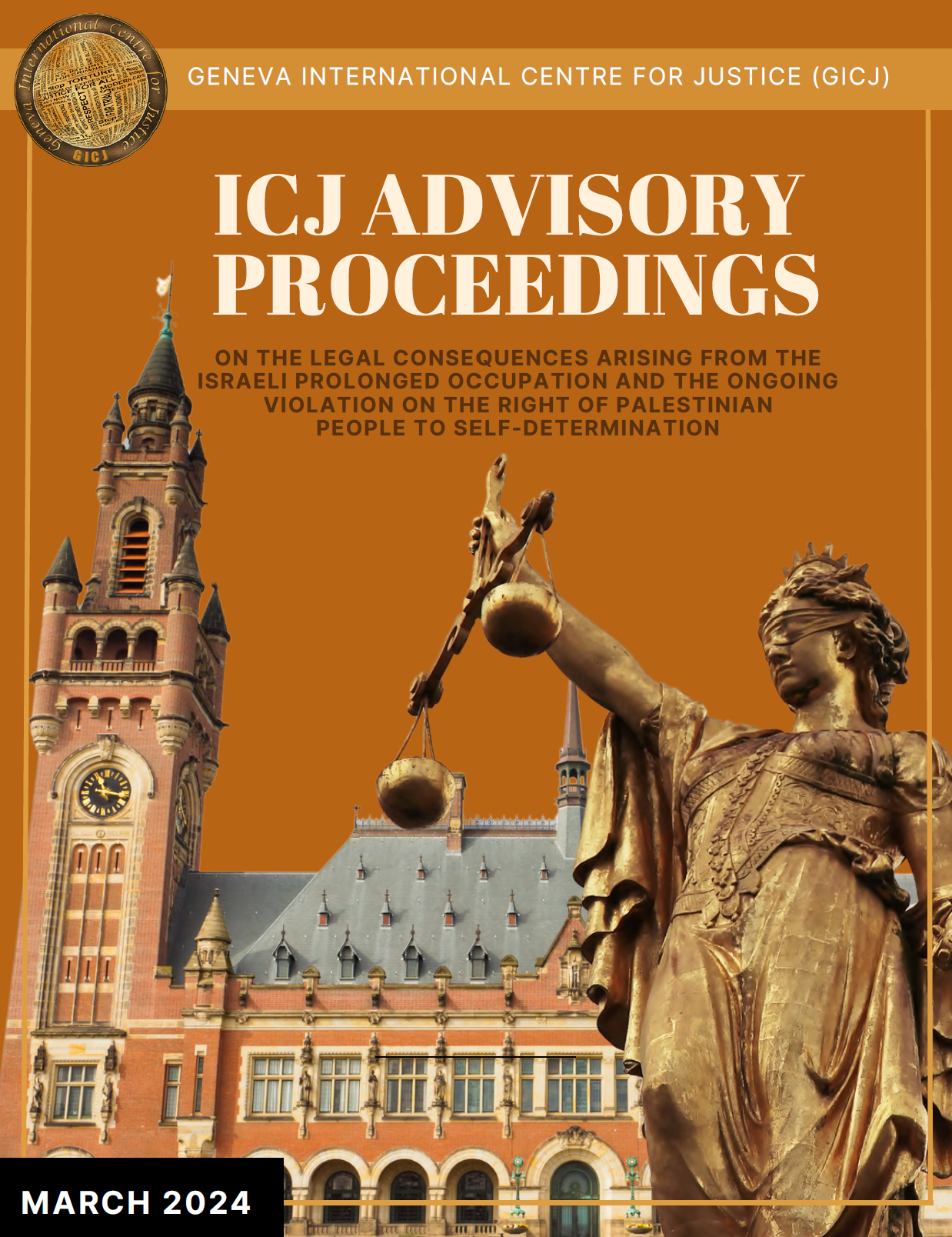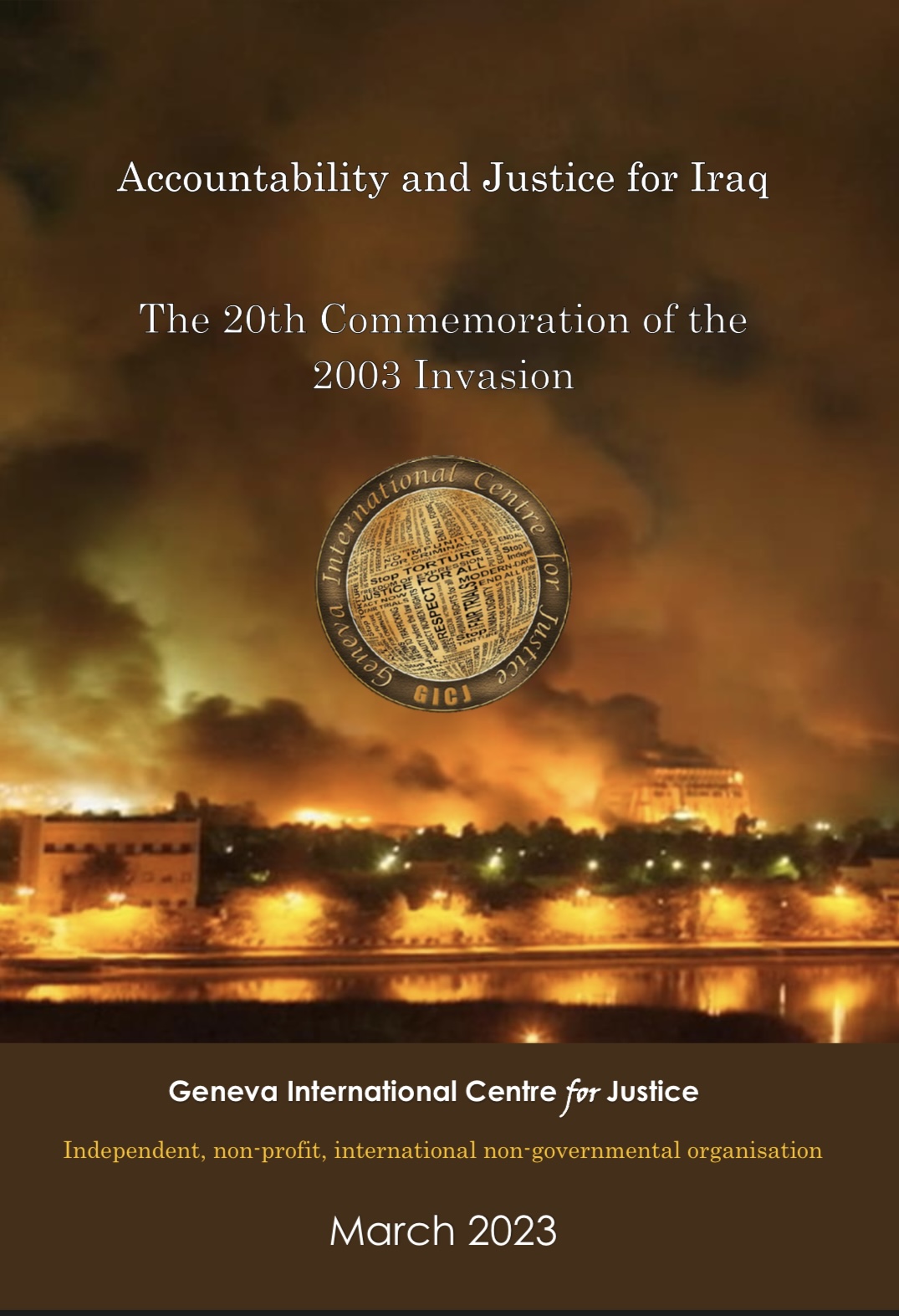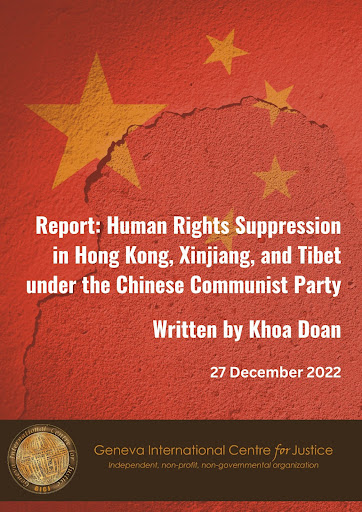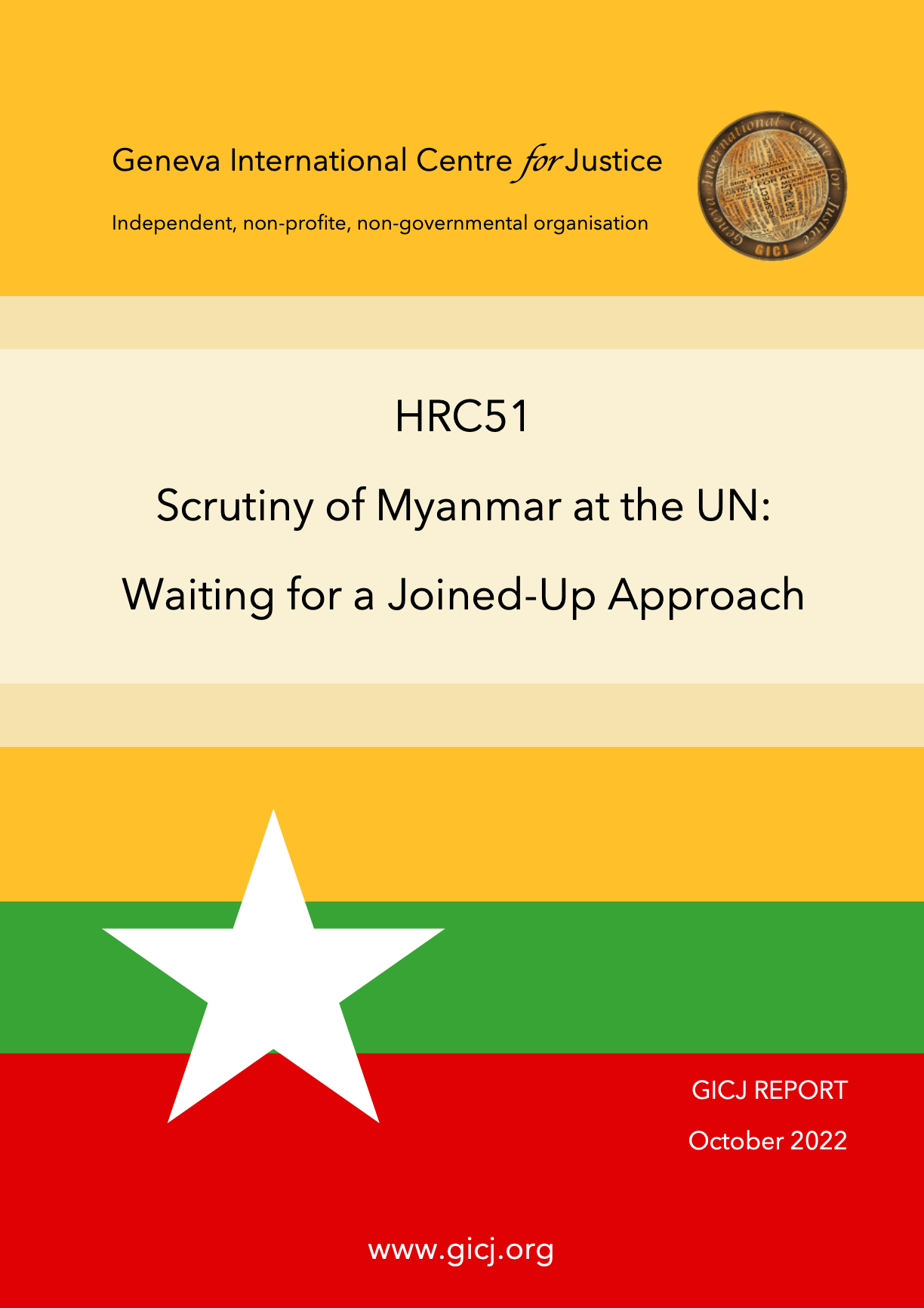GICJ letter to president Trump:
The US must live up to its responsibilities

20 January 2017 - Today is an important date in the history of the United States of America. Mr. Donald Trump becomes the 45th President in a tradition that is over 200 years old - the presidential and vice-presidential inauguration. The world is looking at Washington and trying to anticipate the policies of the Trump cabinet. Not much was mentioned on foreign policy by the President-elect Trump during his election campaign, except categorical criticism of the US errors of omission and commission in Iran, Iraq, Libya and Syria. Trump’s reference to “peace through strength” and that “actions in the Middle East to be tempered by realism” generate many questions. Moreover, the position of Trump’s national security team on the assertive and interventionist approach to the so called “civilizational clash” and the world war of the West and Radical Islam is alarming.
Given the US’s leading role and responsibilities in today’s international affairs, taking into account that the US is a permanent member of the UN Security Council, the new administration’s foreign policy, particularly in the Middle East, is of great importance. Geneva International Centre for Justice (GICJ), hopes that policies to be implemented by the new US administration will contribute to human rights protection and relief efforts in the region. In this regard, GICJ, has sent today a letter to President Trump, raising the following points.
Iraq: The Inexcusable Mistake
President-elect Trump has numerously criticised the 2003 US-led invasion and occupation of Iraq. This act of aggression was a colossal failure based on the political deceit and serious miscalculation of the previous administrations. The consequences of this invasion are constantly downplayed, if not utterly swept under the carpet. The political vacuum created in the country following the invasion in 2003, the incapable administration put in place by the Coalition Forces, and the existing sectarianism have opened the doors to terrorism. That the US has made fighting terrorism a priority is understandable; however, it is a misconception to consider that terrorism spread in the Middle Eastern region is a global threat, whilst sectarianism is only a localised issue for the Iraqi people, who must dealt with it on their own.

Most of 100 sectarian militias that currently operate in Iraq were trained, financed and armed by Iran, including the so-called “Popular Mobilization Front” (al-Hashd al-Shaabi). Acting alongside the regular Iraqi security forces, in the so-called fight against ISIS, these armed groups perpetrate horrendous crimes against the civilian population, the Sunni Arabs in particular. This includes extrajudicial killings, arbitrary detention, enforced disappearances, torture and so on. The consequences of these crimes against humanity and war crimes echo in the Western world, resulting in more challenges. Yet, the US government chose to support these groups, by offering air cover to the Iraqi military operations, on the basis this was to assist the fight against ISIS.
GICJ urges the US administration, first, to officially give an apology to the Iraqi people for the 2003 US-led invasion, the occupation of Iraq and, as a result, the destruction of their country. Further, accountability, which is one of the basic principles of international law, requires ensuring that victims receive full compensation. In addition, the US and other coalition members should restore the destroyed infrastructure, public and private property, including sites of cultural heritage damaged by the Coalition. Moreover, in light of the devastation to the environment, caused by weapons illegally used in a disproportionate manner by the coalition forces, Iraq should undergo an environmental clean-up at the expense of the parties to the Coalition.

Lastly, as one of the P5 members of the United Nations Security Council, GICJ calls on the new US administration to stop supporting the reckless Iraqi government, and its brutal affiliated militias. After 14 years, it has become evident that the corrupt, sectarian political system in Iraq cannot be reformed, thus a different approach must be adopted. Calling an end to US support is an act that is necessary to halt the spread of violent sectarianism across the region. As Mr. Zeid Ra’ad Al Hussein, UN High Commissioner for Human Rights, rightly pointed out, the failure to do so will “…increase the likelihood of a renewed cycle of full-throttle sectarian violence” and rather “give ISIL a propaganda victory, and push people into their arms”.
Policy Change in Syrian Conflict
The ongoing conflict is ravaging Syria. It has, so far, created 470,000 victims, left 860,000 people living under siege, displaced half of the Syrian population, including 4.8 million refugees, and destroyed a country that was once an ancient cradle of civilization.
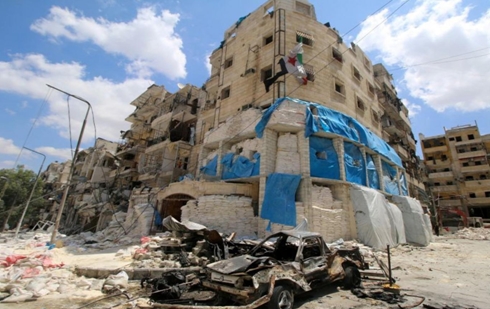
The fact is, this situation has somehow become a new status quo, with no solution in sight. If you consider the political paralysis and divide on the Syrian question, it becomes clear that it is urgent for the U.S to behave according to their professed ideals of democracy and freedom. So far, the U.S has engaged in the Syrian conflict by fighting ISIS, whilst fervently opposing the Syrian government, as well as its allies. Yet it is important to note that although ISIS is the only one shamed by the media, all parties to this war are committing war crimes against Syrian civilians. Resultantly, GICJ is particularly concerned by the Trump’s recent statements regarding his eventual policy shift, in favour of certain parties to the conflict, although they too are guilty of perpetrating tremendous war crimes and crimes against humanity on the Syrian population. Is the U.S willing to become a complicit in this humanitarian catastrophe, which is about to wipe off the map an entire country and its civilisation, adding more suffering to the entire population?
The military contribution US partners can provide in the struggle against violent extremist groups is important; however, one must be careful who they side with. As fervent opponents of any kind of human rights violations, GICJ strongly recommends the newly formed administration should not make a choice of “the lesser evil” but rather, adopt a steady and fair position in order to (re)build the foundations of peace and justice in Syria.
Israeli-Palestinian Conflict
Mr President, you have been crystal clear on your position when it comes to the over 68-year old Israeli-Palestinian conflict, or what you defined as “the war that never ends”. We understand that the “the bond between the U.S and Israel is absolutely, totally unbreakable”, to use your own words. However, GICJ, as a member of civil society and an advocate for human rights, is deeply concerned by some of your statements regarding the Palestinian question. While the U.S should be a model for freedom and democracy, it appears to adopt a completely different attitude when it comes to Palestine.
First of all, while on the one hand you often stress the willingness of Israel to reach a fair and good deal, you also emphasise the constant refusal of the Palestinians to co-operate. In reality, this is far from the truth. Israeli authorities have a long history of turning down U.N resolutions and peace initiatives. The Israeli refusal to participate in the Paris conference in January 2017 is just the most recent and striking example of their stubborn attitude.

Mr Trump, the day-to-day life of the Palestinian people have played out in dramatic news headlines for more than half a century now. In total breach of the international obligations incumbent upon any occupying power, Israel has a long history of oppressing and discriminating against the Palestinians through various means.
Palestinian people are suffering from both massive forced displacement and severe restrictions of movement. This is a result of the ongoing and widespread Israeli settlements in the occupied Palestinian territories (OPT), and especially the West Bank and East Jerusalem, as well as the growing violence of the settlers. These practices are often backed by a disproportionate and ideologically-motivated military presence, and are violating the right of Palestinian people to enjoy basic living standards and their right to return, as established in international human rights and humanitarian law.
It is worrying that in each, and every, speech you delivered during the presidential campaign, you failed to mention any Israeli wrongdoing, but rather, portrayed the occupying power as a benevolent, democratic state, always willing to accommodate the requests of the “ever so-demanding” Palestinians, who you stated in your interview with The Times, January 16th 2017, are “given so much.” Your rhetoric clearly suggests that the 5 million Palestinians living in the OPT (almost the same population as Colorado), are just a bunch of terrorists, who claim something that is not theirs by violent means. If you think that there are some Palestinian extremists committing crimes, the overwhelming majority of the civilian population is only demanding their sacrosanct right to self-determination and to live in peace and dignity - either under two states, or one, in which they can enjoy the same rights as the other. So we demand your administration to do whatever is in your power to help broker an agreement which truly reflects the best interest of both populations.
Iran: Sectarian Mastermind of the Middle East
The lifting of sanctions on Iran, in relation to the nuclear deal, failed to address the human rights record of the country. The billions given to Iran are likely to be used for funding terrorist organizations throughout the Middle East, with the aim of exporting its sectarian agenda and acquiring control of strategic areas. The financed military groups such as the Lebanese Hezbollah, the Popular Mobilization Militia in Iraq, several fronts in Syria and the Houthis militia in Yemen, commit serious crimes against the civilian population. The Iranian policy of international militarism is well known, but it has grown exponentially over the recent years, in a very dangerous trend. In this context, GICJ shares the concerns and determination of Trump’s cabinet to dismantle Iran’s global terror network. We hope that the new US government will push for the adoption of a UN Security Council resolution, in order to prevent Iran from continuing this policy, and stop it interfering with middle-eastern affairs.
Critical Situation in Yemen
GICJ would like to bring to the attention of Trump’s administration the situation in Yemen. The Yemeni armed conflict resulted in cross-sector humanitarian issues. Indiscriminate shelling by militia destroyed medical facilities and killed many members of the medical personnel, as well as resulted in massive destruction of the educational, historical, religious and cultural sites. The civil war negatively affected the economy and almost totally collapsed the health sector. The Houthi-Saleh groups also carried out vastly destructive acts against residential areas throughout the country. In addition to the civilian casualties, the ongoing conflict has led to the systemic downfall of the Yemeni state. The armed groups take advantage of this security vacuum in the country and conduct violent acts to increase the sectarianism within Yemeni society.
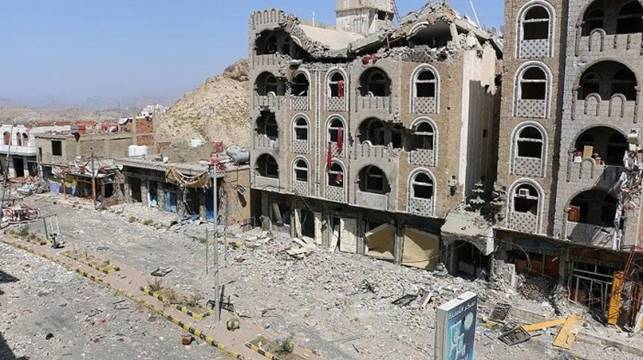
GICJ documents serious crimes committed by the rebel forces against the civilian population. We would like to assert the dramatic and negative impact of the Saudi-led Coalition on civilian homes and infrastructure. Therefore, the Trump administration should carefully reconsider the US involvement in the Yemeni conflict, provide constructive support to fight the Houthi rebels, and bring this conflict to an end. An important element in this regard is the implementation of the UN Security Council resolutions (Res. 2266, Res. 2216 and Res. 2204) which contain the principles necessary to establish peace in the country.
“Counter-Terrorism” vs. “Nation-Building”
As far as the Middle East is concerned, it seems that Trump’s national security team is inclined to conceive the US military role in the region more in terms of “counter-terrorism” than in terms of stabilization, or “nation-building.” While appreciating that the fight against terrorism is a top priority of Trump’s administration, it is mandatory that the conduct should be in compliance with international humanitarian and human rights law. As the architects of the “War on Terror” painfully discovered in Afghanistan and Iraq, the new US government should carefully plan and design its foreign policy, and should keep in mind that, in practical terms, the distinction between “nation-building” and “counter-terrorism” are much more blurred than abstract theoretical reasoning might suggest.
Conclusive Remarks
GICJ has seen many potential controversies during Trump’s election, especially concerning future foreign policy. It triggered fears within the international community due to its potential to create more divide than unity. The decisions of the US government have a tremendous impact on millions of lives around the world. Thus, responsibility to ensure a balanced and reasonable foreign policy is on the shoulders of Trump’s team. In GICJ’s view, the motto to “make America great again” does not mean an aggressive form of imperialism at the expense of the weak and poor. Rather, it believes it should be the embodiment of democratic values that the American nation was built on. The United States, as one of the most powerful countries in the world, should demonstrate genuine dedication to promote and protect human rights and freedoms.
Documenting and reporting human rights violations in Iraq
| Executions | Human Rights Violations in the context of fight against terrorism | Peaceful protests | ||||
 |
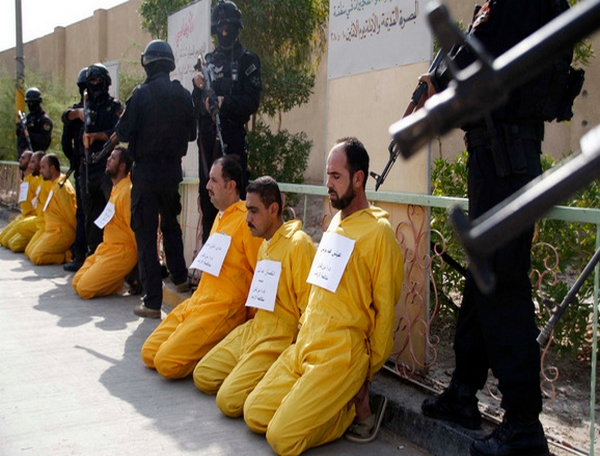 |
 |
||||
 |
 |
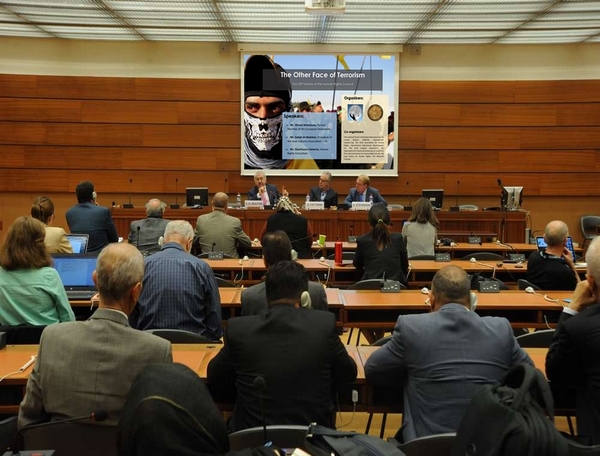 |
||||







